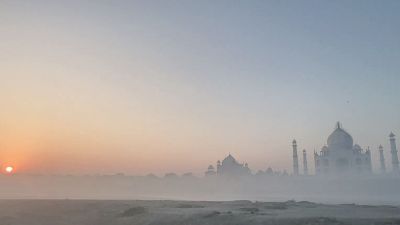📣 For more lifestyle news, click here to join our WhatsApp Channel and also follow us on Instagram
Dilip Kumar once fondly spoke about Dharmendra, praised his aura: ‘Iss kadar khoobsoorat, haseen chehra’; psychologist on compliments and comparisons among co-stars
"Allah, mereko aise hi bnaya hota to kya ho jaata?" Dilip Kumar once said about Dharmendra
 Dilip Kumar once said that he was so impressed by Dharamendra's portrayal of tragedies, that he felt the latter would replace his stature as the tragedy king
Dilip Kumar once said that he was so impressed by Dharamendra's portrayal of tragedies, that he felt the latter would replace his stature as the tragedy kingDharmendra, also known as Bollywood’s He-Man, passed away at 89 on November 24. Not only was he an audience favourite, but the Sholay actor was equally admired by his co-stars, including Dilip Kumar. Pegged as the ‘Tragedy King’ of the industry, Kumar was widely applauded for his flawless acting. Given his stature and fame, it might be safe to infer that he was a dream inspiration for many aspiring actors. But did you know that the legendary actor admired Dharmendra’s charisma a lot and wished he were more like him? At the 42nd Filmfare Awards, the actor made the heartwarming confession.
“Bahut se saal hogaye jab Dharam ko maine pehli bar dekha tha, aur dekhte hi mere man me umang ayi ki Allah mereko aise hi bnaya hota to kya ho jata. Is kadar khoobsoorat, haseen chehra. Ankho se roohani raushni tapakti thi… jiski fitrat sada ho wo admi tragedies bahut achi kar skta hai. Maine kaha ki ab tumse agey baazi le jayega” (When I first saw Dharmendra many years ago, I wondered to myself, ‘God, what if you’d made me like him: so handsome with heavenly eyes.’ A simple man is great at portraying tragedies, and I thought he had succeeded me now.)
Psychologists note that comparison is a universal behaviour, affecting everyone from ordinary individuals to celebrated actors. To better understand the dynamics behind such thoughts, we reached out to Neha Parashar, a clinical psychologist at Mindtalk, who explains why even the most successful can struggle with feelings of inadequacy and how to manage them.
Q1. Why do people tend to compare themselves with others, even if they are extremely successful?
“Comparison is a deeply ingrained human behaviour that stems from our evolutionary need to belong and gauge our place within social hierarchies, explains Parashar. She points out that even highly successful individuals are not immune to this instinct. The brain constantly seeks feedback to measure self-worth, and in today’s hyperconnected digital world, exposure to curated versions of others’ lives amplifies this urge. “For many, success becomes relative rather than absolute; achievements start feeling smaller when contrasted with someone else’s highlight reel.”
Q2. How does public recognition and fame impact self-esteem and feelings of ‘I’m enough’?
“Public recognition can initially boost confidence,” Parashar says, adding that “ when self-worth becomes tied to external validation, it creates emotional fragility.” She notes that fame often shifts a person’s internal compass from ‘Who am I?’ to ‘How am I being perceived?’ This dependency on applause can make one vulnerable to self-doubt when attention fades or criticism arises. “The constant scrutiny also creates pressure to maintain an idealised image, which can gradually distance individuals from their authentic selves, affecting their sense of being enough.”
Q3. What practical exercises or psychological strategies can help manage the stress and self-doubt that come from constant comparison?
“A useful first step is practising self-awareness — noticing when comparison arises and what emotions it triggers.” Parashar recommends cognitive reframing by replacing thoughts like ‘they’re better than me’ with ‘their journey is different from mine.’ The psychologist says that mindfulness meditation and gratitude journaling can also help train the mind to focus on personal growth rather than external benchmarks. Similarly, setting intrinsic goals, such as learning or creative fulfilment, helps anchor self-esteem internally. “Seeking therapy can also be transformative, providing tools to build a stronger, self-defined sense of worth that isn’t swayed by external measures of success,” she concludes.
📣 For more lifestyle news, click here to join our WhatsApp Channel and also follow us on Instagram
- 01
- 02
- 03
- 04
- 05



























